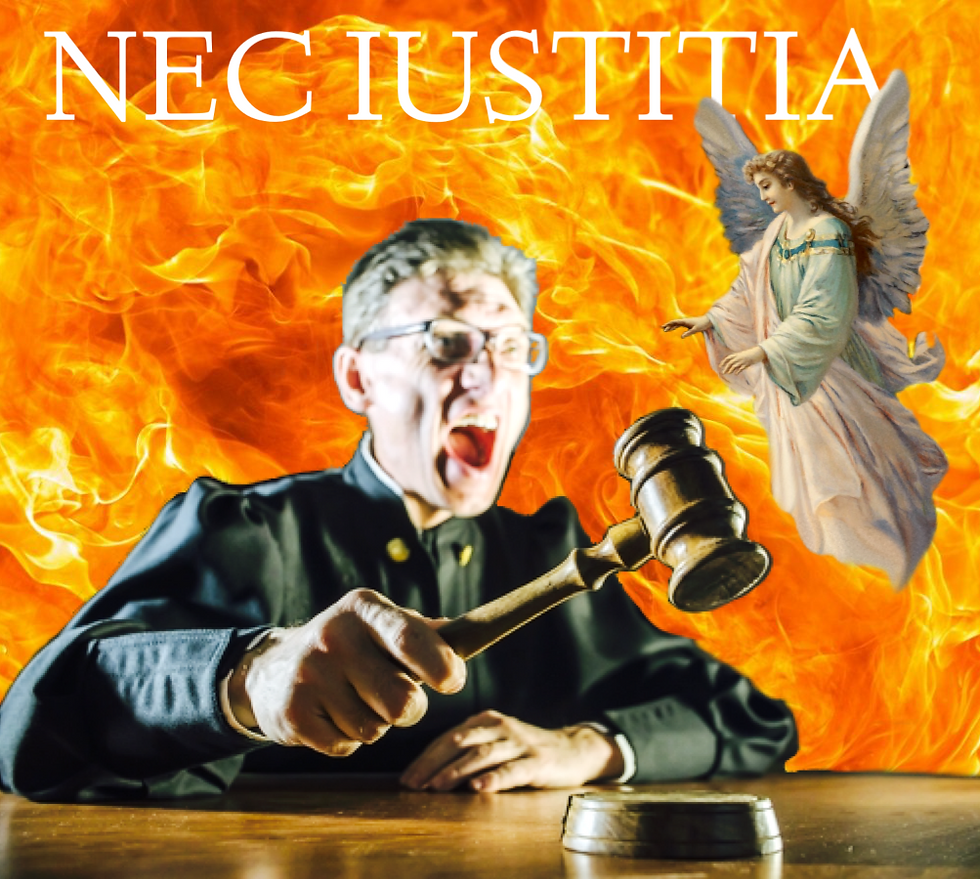Why you are wrong about everything (pretty much)
- NIL
- Apr 20, 2019
- 4 min read
Do you consider yourself a fair person? You’re not.
Does injustice infuriate you? You yourself are unjust.
Do you only give credit where credit is due? Who are you kidding?
Are you an accurate judge of character when it comes to other people? Wrong.

This is not meant to insult you or throw doubt on your ‘good' intentions. It is, from Nietzsche’s point of view at least, merely a statement of necessary fact. How so?
In our last post we explored the delusion of both universal and human justice and its potentially dispiriting, nihilistic implications. I promised that we would look at the means of surviving and thriving in this world of injustice. The next step in this process is to understand how it can be that - contrary to all our preconceptions - we are unjust ourselves.
Firstly, for the purposes of this discussion, let us define justice as fairness. Fairness requires evaluations of what is fair and what is unfair. This is so that each may be given their due - a rightful share of some good or ill; of reward or of punishment. However, if one considers the matter carefully, it is clear that human judgments are too flawed to provide a sound basis for such evaluations. We are never in an epistemologically robust enough position to attribute merit or blame to others. In plain English: we never have enough information to make a wholly accurate judgement. In everyday life, we make our minds up about people and take action on the scantest of information and the flimsiest of pretexts.
In Human all to Human, Nietzsche writes:
'No experience of a man ... however close he is to us, can be so complete that we would have a logical right to evaluate him in toto [in total]'
Demonstrably, we only ever have partial information with regard to any set of circumstances. This idea is played with in a bunch of movies, perhaps most memorably in Akira Kurosawa’s Rashamon where a single incident, a rape and murder, is recounted by multiple witnesses, all of whom relate a markedly different story - the same events seen from differing perspectives – that of a bandit, a housewife, a woodsman and a samurai. As this movie highlights, totally complete knowledge of any real-world events is all but impossible - we only ever seem to have fragments of all the potential information that could be gathered. Yet we readily leap to conclusions based on just these few fragments, papering-over any gaps with assumptions.
In his best-selling book, Thinking Fast and Slow, Daniel Kahneman comprehensively evidences the propensity human beings have for filling gaps in knowledge with assumptions that are outright wrong, simply because it is easy or convenient to do so. Human brains are lazy. They want to make the minimum effort, which is really just another way of saying (less pejoratively) that they strive to be efficient. Assumptions don’t tax the cognitive faculties, being based on our past experiences or cultural preconceptions or even, worryingly, deliberate misinformation that has been presented to us. When we use assumptions we are, at best, applying rough and ready rules of thumb - at worst, we are literally making stuff up - as Nietzsche writes in Beyond Good and Evil ‘one is more of an artist than one realises’.
Back to Human, all too Human - Nietzsche writes that 'all judgements are premature, and must be so’. This is true because, as we have already said, we never have all the data, and so it is always possible that more will become available to us in time, allowing more accurate judgments than those we can make right now. Just look at how many criminal cases are reopened and convictions overturned after new evidence is found. The truth seems to be that we are never beyond all reasonable doubt.
Then, our analysis of even the most complete data is compromised by our own cognitive limitations. That is: are we smart enough to meticulously review this vast body of evidence and come to true conclusions? Have we got the time to do it properly? And what about if we have a headache? What about if we are angry about some other unrelated matter? What if we got out of the bed on the wrong side this morning? What about if we are hungry? Consider the evidence presented by Richard Thaler, that judges are more likely to hand down harsh judgments if they are hungry and be lenient once their appetites have been sated, following lunch.
So our powers of judgement can be inappropriately and unfairly creative. They are also limited in capability, as well as subject to the affects of conditions that are completely unconnected to the matter before us. As Nietzsche writes: 'the gauge by which we measure, our own nature, is no unchangeable quantity; we have moods and vacillations; yet we would have to know ourselves to be a fixed gauge if we were to evaluate fairly the relationship of any one thing to ourselves’.
So it seems we may be on pretty shaky ground whenever we make evaluations. It doesn’t stop here though; in part 2 of this post we will examine yet more factors that undermine our reliability as good judges, before going on to see what we might do about it.
Next post: Integrity – why you don’t have any
Comment-Contribute. Like-Share. Adapt-Overcome.




















Comments